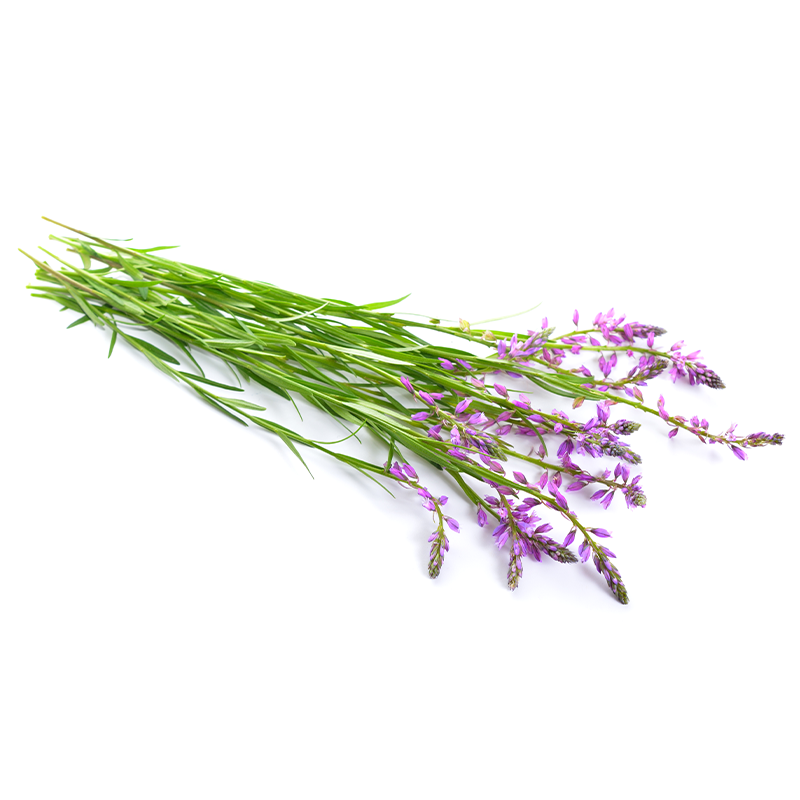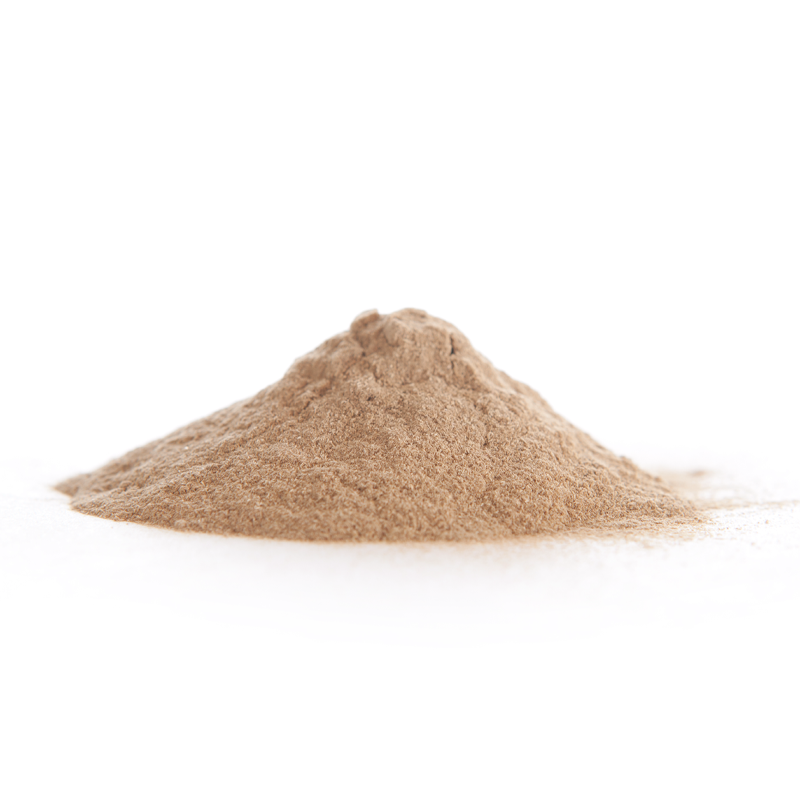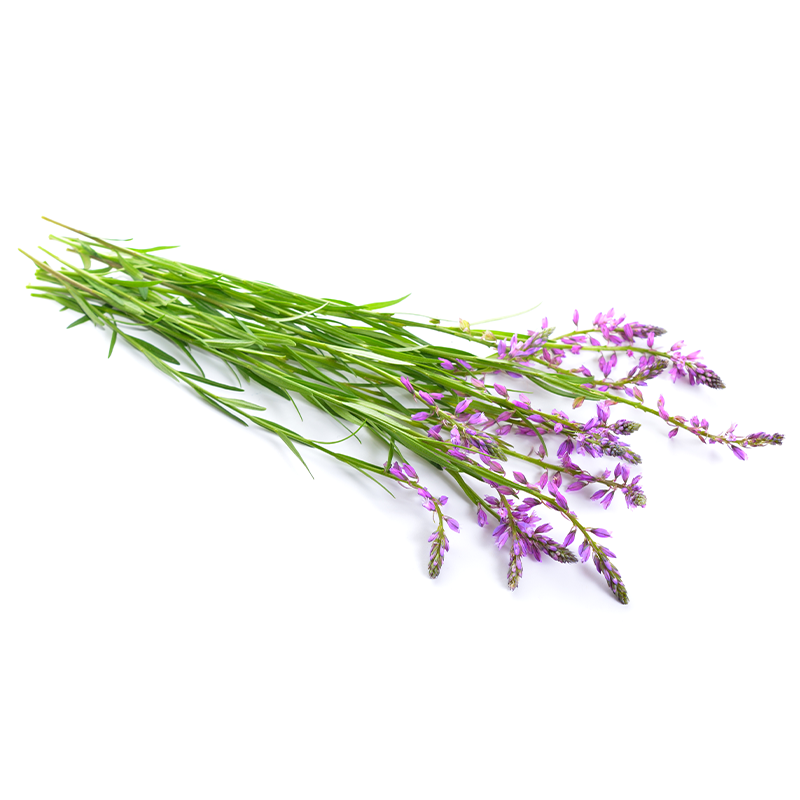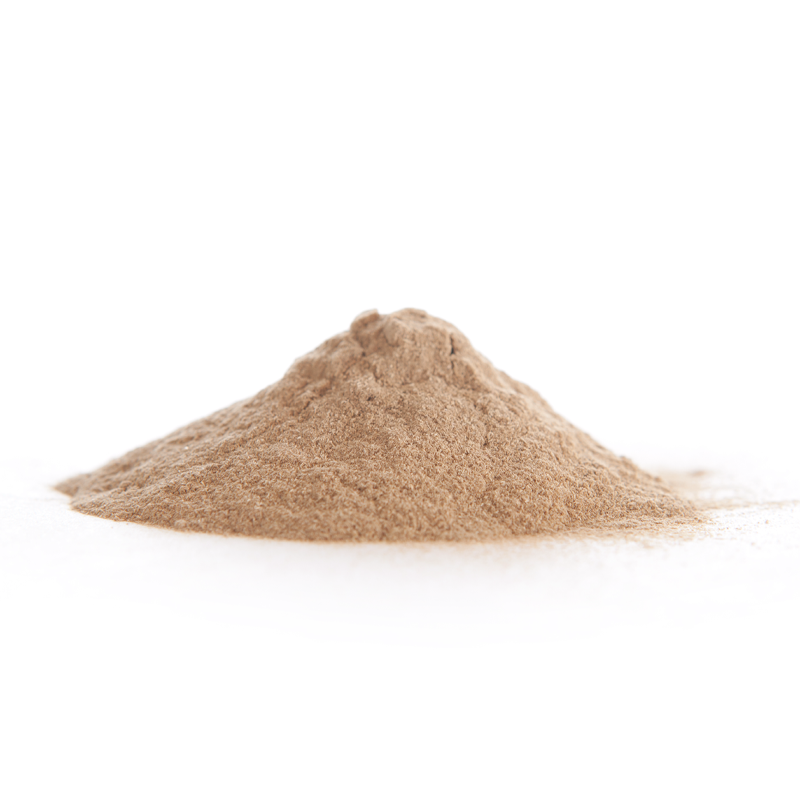Experience the Calming and Cognitive Benefits of Polygala
Polygala, commonly known as milkworts or snakeroots, is a naturally calming herb helpful for supporting mental clarity and acuity. Traditionally used in Chinese medicine, it enhances cognitive functions and emotional well-being. Used to reduce stress and anxiety, its adaptogenic properties balance the body's response to stress.
Polygala supports memory and learning, making it a popular herb in nootropic supplements. Its use spans centuries for mental and emotional health benefits.
More about Polygala
Polygala, a genus encompassing a variety of species including Polygala tenuifolia, is highly regarded in traditional medicine systems across Africa, Asia, and South America. Known for its bitter and slightly acrid taste, Polygala is used primarily for its cognitive-enhancing and neuroprotective properties.
The active components, such as saponins, flavonoids, oligosaccharide esters, tenuifolin, and 3,4,5-trimethoxycinnamic acid, contribute to its diverse pharmacological activities. These include memory improvement, neuroprotection, anti-inflammatory, antidepressant, and sedative effects.
In an apothecary or herbal shop, Polygala is often sought after for its therapeutic benefits in managing memory disorders, anxiety, depression, and other neurodegenerative conditions. Its adaptability in various forms, from teas to extracts, makes it a valuable and accessible remedy. The herb's origin from diverse global regions underlines its universal appeal and long-standing significance in herbal medicine traditions.
Know Your Ingredients: Polygala
| Latin Name | Polygala tenuifolia and others in the genus |
| Active Ingredients | Saponins, flavonoids, oligosaccharide esters, tenuifolin, 3,4,5-trimethoxycinnamic acid, polygalacic acid |
| Classification Secondary Metabolite | Saponins, Flavonoids, Triterpenoids |
| Flavor | Generally bitter and slightly acrid |
| Common Use | Traditional medicine for improving memory, neuroprotection, sedative, anti-inflammatory, antidepressant effects |
| Origin | Widely distributed in Africa, Asia, and South America |




